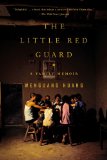Summary | Excerpt | Reviews | Beyond the Book | Readalikes | Genres & Themes | Author Bio

A Family Memoir
by Wenguang Huang
According to Grandma, the Huang family clan had a harmonious
and prosperous life in a village in the northwest of Henan
Province, on the northern bank of the Yellow River. In the late
1920s, tuberculosis hit the village and Grandpa was one of the
first to succumb. It was a bloody death. The family paid a wellknown
feng shui master who recommended moving the family
cemetery plot outside the village, next to the Yellow River, as
a way to stem the outbreak. In those days, there was a popular
legend about a big dragon resting under the Yellow River at the
very point where it bordered Grandma's village. The feng shui
master assured everyone that the spot he had chosen for Grandpa
straddled the dragon's back. "The new burial ground will bring
luck to our family," Grandma continued. "When I reunite with
Grandpa in my next life, a generation cycle will be complete. It's
good for all of you."
Grandma repeated the story countless times. We would look
at one another and mouth her words as she spoke them. My elder
sister would call Grandma a superstitious woman. Even Father
agreed and told Grandma not to tell the story again.
At first, my parents ignored Grandma's plea, but she only
became more determined. During a chat with a neighbor, she
learned a startling fact - burial had been outlawed in our city of
Xi'an. The neighbor said that if a city dweller died in the hospital,
the doctor wouldn't allow relatives to take the body home. It
went to a big icebox in the morgue and then was sent for cremation.
A young man had bribed the morgue keeper and retrieved
his mother's body so he could have it buried. He was caught, and
the police intercepted the corpse and sent it straight to the crematorium, so he had no time to perform even perfunctory rituals.
Grandma was in a panic. She seldom left our residential complex
and was clueless about the changes sweeping China. She got
most of her news from neighbors, from my parents and from
me. Sometimes, knowing the kind of stories she liked to hear,
I would make one up to get her attention, but I didn't dare lie
when Grandma asked me about the cremation law. Yet in telling
the truth, I scared her. She waited until Mother was outside chatting
with her friends and approached Father, who was sipping tea
by a coal-burning stove near the front door. She sat down on a
chair next to him, had me bring her a basin of hot water so she
could soak her tiny bound feet. "Jiu-er," she said, using Father's
pet name. "Please don't burn me after I die. Will you promise
me that?"
My sister and I were doing our homework under the light of
the single bulb that lit the room. The word "burn" caught my
attention. I watched Grandma and Father from the corner of
my eye.
"I've told you, there is nothing to be afraid of," Father said,
sounding a little impatient. "What difference does it make? When
we die, our mind and body cease to exist. You won't know or feel
anything."
Grandma shook her head; her face was a grimace of horror.
"No... I don't want to be tortured in fire after I die," she said.
How would she reunite with her husband in the next life if her
body was reduced to ashes? As they talked, Grandma grew more
and more agitated, and began stomping her tiny feet, sending the
water from the basin splashing across the floor.
Father stood up and grabbed a towel for her to dry her feet
and spoke softly, "We'll talk later. Let's not interrupt your grandchildren's
homework."
Father found himself in a difficult situation. Initially, he fully
intended to follow the regulations - bring Grandma's ashes
home, hold a simple ceremony, and then bury the urn next to
Grandpa. The practice of burial had been banned since the Communist takeover in 1949 and the government stepped up its
crackdown in the mid-1970s. The mandate for cremation carried
both practical and ideological reasons - burial wasted land that
might otherwise be used for agriculture or buildings. Land for
farming was scarce; urban residents were crammed into smaller
and smaller dingy apartments. Father saw sense in the policy and
tried to reason with Grandma. In the 1960s and 1970s, China
faced threats from the Soviet Union and the United States, which
then had a heavy military presence in Southeast Asia. To protect
China's industry from possible attack by "Soviet Revisionists" and
"American Imperialists," the government moved many strategic
industries inland. Xi'an was chosen for the manufacture of military
equipment and heavy machinery and as the site of universities
and scientific research institutions. Within a few years, the
city's population exploded to six million (now eight million). As
a result, Father said many young people at his company couldn't
get married because there was nowhere for them to live. They
waited years to be assigned an apartment. In other words, the
dead had to make room for the living. And traditional funeral
rituals were expensive, and rife with Buddhist and Taoist tradition,
which was contrary to Communist ideology.
Reprinted by arrangement with Riverhead, a member of Penguin Group (USA) Inc., from The Little Red Guard: A Family Memoir by Wenguang Huang Copyright © 2012 by Wenguang Huang
Your guide toexceptional books
BookBrowse seeks out and recommends the best in contemporary fiction and nonfiction—books that not only engage and entertain but also deepen our understanding of ourselves and the world around us.